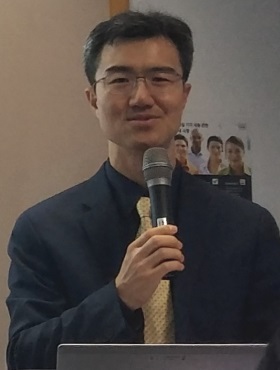“CAR-T (chimeric antigen receptor T-cell) therapy has dramatically improved the survival rate of patients with relapsed refractory B cell-derived lymphoma who no longer responded to existing treatments. Still, the new therapy is far from domestic use.”

So said a local physician about CAR-T therapy, which drew attention with a high cure rate in blood cancer. It was a pity that domestic patients were facing a delay in getting access to the drug, the doctor added.
Yoon Dok-hyun, a professor at the Oncology Department of Asan Medical Center, said CAR-T therapy significantly improved survival in patients who would have died with conventional treatments, at a media session on blood cancer arranged by Roche Korea on Tuesday.
The two products (Kymriah, Yescarta) have shown 40 percent of two-year survival rate in relapsed patients, who have had only six months of survival, in clinical studies, suggesting a possibility of long-term survival, he said.
However, CAR-T therapy has limitations that it takes a long time to manufacture it, and some patients may suffer a severe side effect, he added.
Among the two CAR-T therapies, Novartis’ Kymriah (ingredient: tisagenlecleucel) is more likely to arrive in the Korean market. The treatment won the local designation as an orphan drug in March.
However, Novartis has not rolled out the product yet. The drugmaker attributed the delay to tight regulations on cell imports/exports, a certification needed for a hospital’s equipment for the therapy, and training for physicians.
“Domestic tertiary hospitals’ facilities are sufficient to use CAR-T therapy. Doctors also have enough capacity to be able to use the treatment,” Yoon said. “The drug company seems to secure maximum safety for its use.”
“Lymphoma patients are usually responsive to anticancer drugs, but not all patients can be cured. They can have recurrences frequently. In many cases, physicians cannot use a more effective new drug to relapsed patients either because it hasn’t come to market or because it cannot be used as off-label,” Yoon said.
CAR-T therapy is used to treat blood cancer in Japan, but it is difficult to use it in Korea due to various restrictions, he added.
According to Yoon, lymphoma is a type of blood cancer that accounts for nearly half of all blood cancer. The domestic incidence is smaller than in the West, but it has been increasing recently.
In the 2016 cancer registration statistics, the number of new lymphoma patients totaled about 5,000 a year. The number is estimated to have gone up to 5,300 in 2019, considering the rising trend.
Lymphoma is divided into Hodgkin’s lymphoma and non-Hodgkin’s lymphoma, depending on the type of lymphocyte. Hodgkin's lymphoma accounts for about 5 percent, and the rest are classified as non-Hodgkin’s lymphoma. Among non-Hodgkin's lymphomas, diffuse large B-cell lymphomas have the highest incidence.

